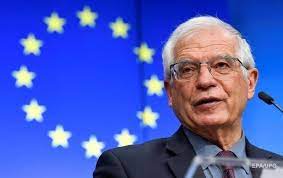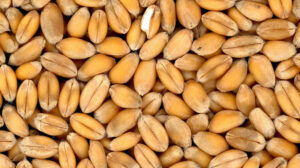
The European Commission expects Kyiv to fulfill the conditions agreed upon earlier and the European Council to approve the Ukraine Plan, which will allow it to disburse another EUR1.5 billion in April and EUR1.9 billion in May under the Ukraine Facility, said Valdis Dombrovskis, the European Commission’s executive vice president.
“The next disbursement (for the Ukraine Facility) of EUR1.5 billion is scheduled for this month, if the policy conditions are met,” he said in a press statement following the meeting of the EU Council of Ministers (ECOFIN) held on April 12 in Luxembourg.
According to Dombrovskis, the European Commission is currently assessing Ukraine’s plan to draw up quarterly indicators of reforms and investments that need to be made to unlock future disbursements.
“In the near future we will finalize this work and submit the assessment to the (European) Council. Once the approval is received, it will pave the way for Ukraine to receive the pre-financing of EUR1.9 billion, most likely in May,” the Executive Vice President said.
He emphasized that the EUR50 billion Ukraine Facility until 2027 is a lifeline from the EU at an extremely difficult time to help Ukraine maintain key public services and keep the state functioning while Russia wages a brutal war, and recalled that the first tranche of EUR4.5 billion in transitional financing was disbursed in March.
Speaking about the Ukraine Plan, Dombrovskis noted that it will be the main instrument for the implementation of the Ukraine Facility, and it focuses on structural reforms to remove barriers to growth, investments in key sectors, and measures to facilitate Ukraine’s convergence with EU rules and standards as part of its accession path.
As reported, Ukraine expects to receive a total of EUR 2024 billion under the Ukraine Facility, with a total need for external financing of this year’s budget deficit of EUR 37.3 billion.

European Union High Representative for Foreign Affairs and Security Policy Josep Borrell says that the European Commission has paid the first EUR4.5bn from the Ukrainian fund totaling EUR50bn.
He made the announcement on Wednesday in Brussels at a press conference at the end of the EU-Ukraine Association Council.
“Today we made the first disbursement of EUR4.5bn from the EUR50bn Ukrainian Aid Fund to support Ukraine’s recovery, reconstruction and modernization. Tomorrow the European Council will discuss how to further accelerate Ukraine’s accession (to the EU),” Borrell said.

German Chancellor Olaf Scholz is optimistic on the allocation of EUR50 billion for Ukraine, Reuters reports.
“We have other ways to help Ukraine, but we have not given up the goal of finding a solution here,” Scholz said.
German Chancellor and French President Emmanuel Macron hope that Ukraine will receive help from the EU.
As reported, an extraordinary meeting of the European Council, which is to decide on the revision of the EU budget, as well as on the continuation of EUR50bn funding for Ukraine until 2027, will be held at the end of January-February, but there is no specific date yet. At the same time, the European Commission intends to work on a contingency plan that will make it possible to do so.

On Sunday, the European Commission called on Poland, Hungary and Slovakia to be constructive after they unilaterally announced that they would extend the ban on grain imports from Ukraine despite the Commission’s decision to end the ban, Reuters reports, citing a European Commission spokesman.
“We are aware of statements by some member states regarding unilateral measures. It is now important that all countries work in a spirit of compromise and engage in constructive cooperation,” the Commission spokeswoman said.
According to her, Brussels is now focused on “putting in place and making work the new system that has just been announced.”
In particular, Reuters reports that a meeting with representatives of all interested EU countries will be held on Monday to discuss the issue of Ukrainian grain imports in more detail.
The news agency notes that Ukraine was one of the world’s leading grain exporters before Russia’s invasion in 2022 reduced its ability to deliver agricultural products to world markets through Black Sea ports. Since then, Ukrainian farmers have relied on grain exports through neighboring countries.
However, the influx of grains and oilseeds to neighboring countries has affected the incomes of local farmers and led governments to ban imports of agricultural products from Ukraine.
As reported, the ban on the export of wheat, barley, rapeseed and sunflower seeds from Ukraine to Poland, Hungary, Slovakia, Romania and Bulgaria, introduced on May 2 for the period until June 5, was extended until September 15.
On Friday, September 15, the EU allowed the ban to be lifted after Ukraine promised to take measures to tighten export controls to neighboring countries.

The European Commission may extend for another two months the embargo on imports of Ukrainian grain, including wheat, corn, rapeseed and sunflower seeds, to Poland, Hungary, Romania, Slovakia and Bulgaria.
A source close to the negotiations told Interfax-Ukraine on Wednesday in Brussels.
As you know, a meeting of the coordination platform is taking place in Brussels on Wednesday with the participation of the countries concerned.
“It is proposed to extend the ban on imports of Ukrainian grain for two months. It is not yet known when the official decision will be made,” he said.
At the same time, the deadline for the ban on Ukrainian grain imports expires on September 15.
As you know, in May 2022, the EU decided to suspend import duties, quotas and trade remedies on Ukrainian exports to the European Union – known as autonomous trade measures – to help alleviate the difficulties faced by Ukrainian producers and exporters after the Russian invasion. At the same time, following logistical problems in Bulgaria, Hungary, Poland, Romania, and Slovakia caused by imports of wheat, corn, rapeseed, and sunflower seeds originating in Ukraine, exceptional and preventive measures on their imports came into force on May 2, 2023, and were extended on June 5.
A day earlier, on September 12, European Commissioner for Agriculture Janusz Wojciechowski spoke in the European Parliament about the need to maintain the ban on imports of wheat, corn, rapeseed and sunflower seeds from Ukraine to Bulgaria, Hungary, Poland, Romania and Slovakia. According to him, this decision has proved to be effective and should be extended after September 15 with the simultaneous expansion of the Solidarity Roads for the transit of these Ukrainian products. “We have found a solution that, firstly, stabilized the market in these (five) countries, and, secondly, allowed us to increase transit from 2.9 million tons before the ban from Ukraine to 3.2 million tons after the ban was introduced,” he said.
According to the EC, 44 million tons of agricultural products have already been transported from Ukraine via the road and rail “Solidarity Roads” of these countries, and according to current forecasts for this marketing year 2023-2024, Ukraine needs to export 56 million tons of grain, or 4.7 million tons on average per month. “The Black Sea is blocked, and no one knows if it will be unblocked by Russia. Russia knows what it is doing in this regard, what criminal activities it is conducting, and it is using food as a weapon. But we are able to help Ukraine export these 4.7 million tons by land through the Solidarity Corridors. We just need to improve and expand these corridors,” the European Commissioner emphasized.
Wojciechowski mentioned Baltic ports as new routes: Lithuania, Klaipeda, Riga, and the ports of the Adriatic, as Romania is practically unable to increase transit.